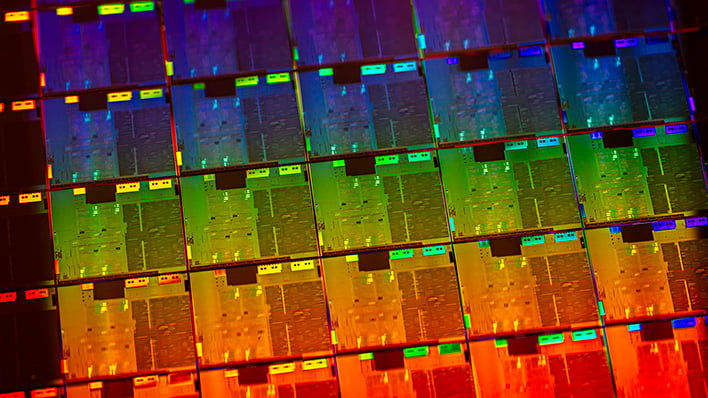Intel Rocket Lake-S 11th Gen 8-Core, 16-Thread CPU Benchmarks Leak Yet Again

For the four millionth time (rough estimate), a desktop processor based on Intel's upcoming Rocket Lake-S architecture has found its way to a benchmarking database, providing a potential glimpse of performance to come. And if that is indeed the case, then Rocket Lake-S is looking pretty good, considering it is yet another iteration of Intel's 14-nanometer node.
Intel has been on 14nm since Broadwell debuted nearly six years ago. To the chipmaker's credit, it has been able to stay competitive at all sectors of the market at 14nm, even as rival AMD has shifted its designs to 7nm. Granted, nodes from two different manufacturers (in this case, AMD/TSMC and Intel) are not directly comparable, but even Intel admits that it is given up process leadership for the moment.
In any event, Rocket Lake-S will supplant Comet Lake-S. It will also introduce a new socket (LGA 1200), and is rumored to finally feature support for PCI Express 4.0, as well as faster DDR4 memory (though not DDR5) and Thunderbolt 4. Oh, and Intel's Xe graphics will come along for the ride as well, if the rumors and leaks up to this point have been accurate.
As to this latest benchmark leak, Twitter use @momomo_us spotted the listing at SiSoftware's SANDRA database. Here's a look...
According to the listing, this is a Rocket Lake-S processor with 8 cores and 16 threads, clocked at 3.2GHz with 16MB of L3 cache and 8MB of L2 cache (8x 512KB). There is no mention of the boost clock, though other leaks have shown at least one Rocket Lake-S part hitting a 5GHz Turbo frequency. Hitting 5GHz and higher is a reasonable expectation, based on Comet Lake-S.
Here are some of the benchmark scores the Rocket Lake-S chip posted...
- Processor Multi-Media: 729.65Mpix/s
- Processor Multi-Core Efficiency: 61.03GB/s
- Processor Cryptography: 10.49GB/s
- Data Cache/Memory Latencies: 48.6ns
- Data Cache Bandwidth: 289.53GB/s
There are several more, which you can view in the database entry. We don't have a collection of SANDRA scores to compare these with, but according to Twitter user FriedMoose, the average multi-media score for a Core i7-10700K is 918.59Mpix/s.
"If [the Rocket Lake-S CPU] is actually running at 3.2GHz, then the IPC gain seems to be around 16 percent, Probably slightly less when you scale up to 5GHz+," FriedMoose said.
The user later corrected their math, saying it is closer to 20 percent.
"I divided the average score by the all-core Turbo of the 10700K, but Ranker lists the average speed of a 10700K in that test at 4.85GHz," the user added.
Incidentally, we covered a separate rumor over the weekend in which it was suggested Rocket Lake-S would feature Cypress Cove cores that are essentially back-ported Willow Cove cores (as found on 10nm Tiger Lake), with an IPC bump in the neighborhood of 20 percent compared to Skylake. Assuming that's true (and we don't know that it is), it should be about the same with regards to Comet Lake.
All we can do at this point is wait for Rocket Lake-S to arrive. In the meantime, don't be surprised if more leaked benchmarks emerge.


